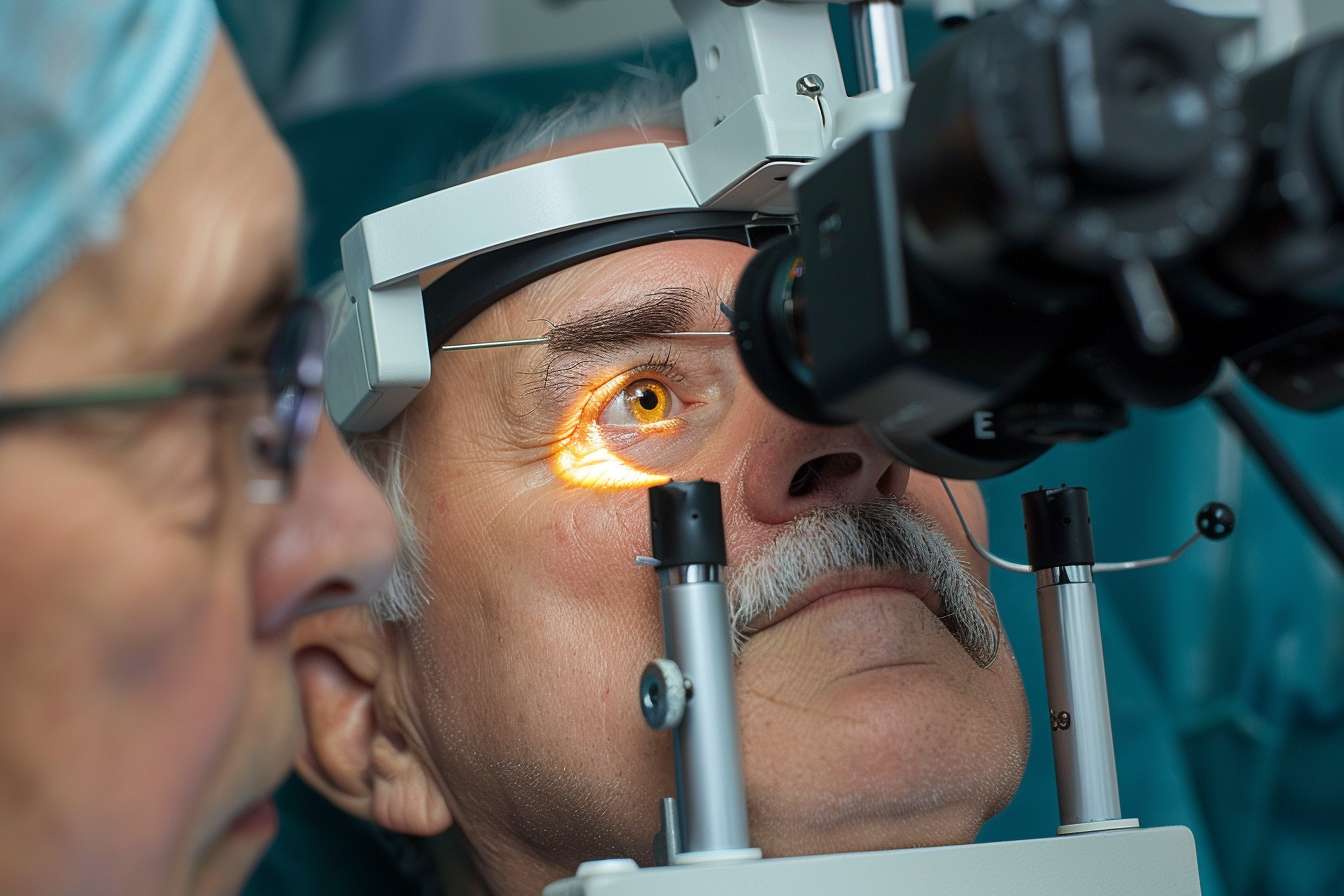UK Private Cataract Surgery Costs and Procedure Guide
Cataracts affect millions of people across the UK, causing cloudy vision that can significantly impact daily life. Private cataract surgery offers faster treatment options compared to NHS waiting times, but understanding the costs and procedures involved is essential for making informed decisions. This comprehensive guide explores everything you need to know about private cataract surgery in the UK, from pricing factors to what's included in your treatment package.

Cataracts develop when the natural lens of the eye becomes cloudy, typically due to aging, though other factors like diabetes, prolonged steroid use, or eye injury can contribute. Private cataract surgery in the UK offers patients greater flexibility and choice compared to NHS treatment, but costs can vary significantly based on several factors.
Understanding the Cataract Surgery Procedure
Cataract surgery is one of the most commonly performed surgical procedures worldwide and has a high success rate. The operation typically takes 15 to 30 minutes and is usually performed under local anesthetic as a day-case procedure, meaning you can go home the same day.
During the procedure, the surgeon makes a small incision in the eye and uses ultrasound technology (phacoemulsification) to break up the cloudy lens. The fragmented lens is then removed and replaced with an artificial intraocular lens (IOL). Modern surgical techniques use tiny incisions that often require no stitches and heal naturally.
Most patients experience improved vision within a few days, though complete healing can take several weeks. Post-operative care includes using prescribed eye drops, attending follow-up appointments, and avoiding strenuous activities for a short period. The procedure has evolved significantly over recent decades, with advanced technology making it safer and more effective than ever before.
Factors Impacting Cataract Surgery Pricing in the UK
Several elements influence the overall cost of private cataract surgery in the UK. The type of intraocular lens you choose plays a significant role, with basic monofocal lenses being the most affordable option. Premium lenses, such as multifocal or toric lenses that correct astigmatism, come at a higher price but can reduce dependence on glasses after surgery.
The clinic or hospital location matters considerably, with London and major cities typically charging more than regional centers. Surgeon experience and reputation also affect pricing, as highly specialized ophthalmologists may command higher fees. The comprehensiveness of the package, including pre-operative assessments, the surgery itself, post-operative care, and follow-up appointments, will impact the total cost.
Additionally, whether you need surgery on one or both eyes and any complications or additional treatments required can influence final expenses. Some clinics offer all-inclusive packages, while others charge separately for different components of care.
Expected Costs of Private Cataract Surgery in the UK
Private cataract surgery costs in the UK typically range from £2,500 to £4,500 per eye, depending on the factors mentioned above. Basic packages with standard monofocal lenses generally start around £2,500 to £3,000 per eye, while premium packages with advanced lens technology can reach £4,000 to £4,500 or more per eye.
Many clinics offer discounts when both eyes are treated, which can reduce the overall expense. Some providers also offer financing options or payment plans to make the procedure more accessible. It is worth noting that these prices usually include pre-operative consultations, the surgical procedure, standard post-operative care, and follow-up appointments, though it is essential to confirm exactly what is covered.
Prices, rates, or cost estimates mentioned in this article are based on the latest available information but may change over time. Independent research is advised before making financial decisions.
| Provider | Location Focus | Cost Estimation (per eye) |
|---|---|---|
| Optical Express | Nationwide | £2,695 - £3,995 |
| Optegra Eye Health Care | Multiple UK locations | £2,800 - £4,200 |
| Spire Healthcare | Various hospitals | £3,000 - £4,500 |
| BMI Healthcare | UK-wide facilities | £2,900 - £4,300 |
| Vision Surgery & Laser | London and Southeast | £3,200 - £4,500 |
Prices, rates, or cost estimates mentioned in this article are based on the latest available information but may change over time. Independent research is advised before making financial decisions.
What’s Included in Your Private Cataract Surgery Price
Understanding what is covered in your quoted price is crucial when comparing providers. Most comprehensive packages include an initial consultation with detailed eye examinations and measurements to determine the appropriate lens type and prescription. Pre-operative assessments ensure you are suitable for surgery and identify any potential complications.
The surgical procedure itself, including the surgeon’s fees, anesthetist costs, operating theater charges, and the standard intraocular lens, are typically included. Post-operative care usually covers immediate follow-up appointments, prescribed medications such as antibiotic and anti-inflammatory eye drops, and monitoring during the healing period.
However, some elements may incur additional charges. Premium or specialized lenses beyond the standard monofocal option often cost extra, ranging from £500 to £1,500 per eye. Treatment for complications, though rare, may not be included in the initial price. Extended aftercare beyond the standard period or additional procedures to fine-tune vision might also attract separate fees. Always request a detailed breakdown of what is and is not included before committing to treatment.
Comparing Private and NHS Cataract Surgery Options
While NHS cataract surgery is available free of charge, waiting times can extend from several months to over a year in some areas, depending on clinical priority. NHS treatment typically uses standard monofocal lenses, which correct vision at one distance, meaning most patients will still need glasses for reading or distance vision.
Private surgery offers significantly shorter waiting times, often within weeks of your initial consultation. Patients have access to a wider range of lens options, including premium multifocal and toric lenses that can reduce or eliminate the need for glasses. Private facilities often provide more personalized care, choice of surgeon, and more convenient appointment times.
The decision between NHS and private treatment depends on your individual circumstances, including how much cataracts affect your daily life, financial considerations, and personal preferences regarding lens options and waiting times. Both NHS and private surgeons in the UK are highly qualified, and surgical outcomes are generally excellent regardless of the route you choose.
Preparing for Your Private Cataract Surgery
Once you have chosen your provider and booked your surgery, proper preparation ensures the best possible outcome. Your surgeon will provide specific instructions, but generally, you should arrange transportation home after surgery, as you will not be able to drive. Plan to take a few days off work, though many people return to normal activities within a week.
You may need to stop certain medications temporarily, particularly blood thinners, so discuss your current medications with your surgeon. On the day of surgery, avoid wearing makeup, perfume, or jewelry, and wear comfortable, loose-fitting clothing. Arrange for someone to stay with you for the first 24 hours after surgery if possible.
Following post-operative instructions carefully is essential for optimal healing. Use prescribed eye drops as directed, attend all follow-up appointments, avoid rubbing your eyes, and protect them from dust and water for the recommended period. Most patients experience significant vision improvement and high satisfaction rates following private cataract surgery.
This article is for informational purposes only and should not be considered medical advice. Please consult a qualified healthcare professional for personalized guidance and treatment.




